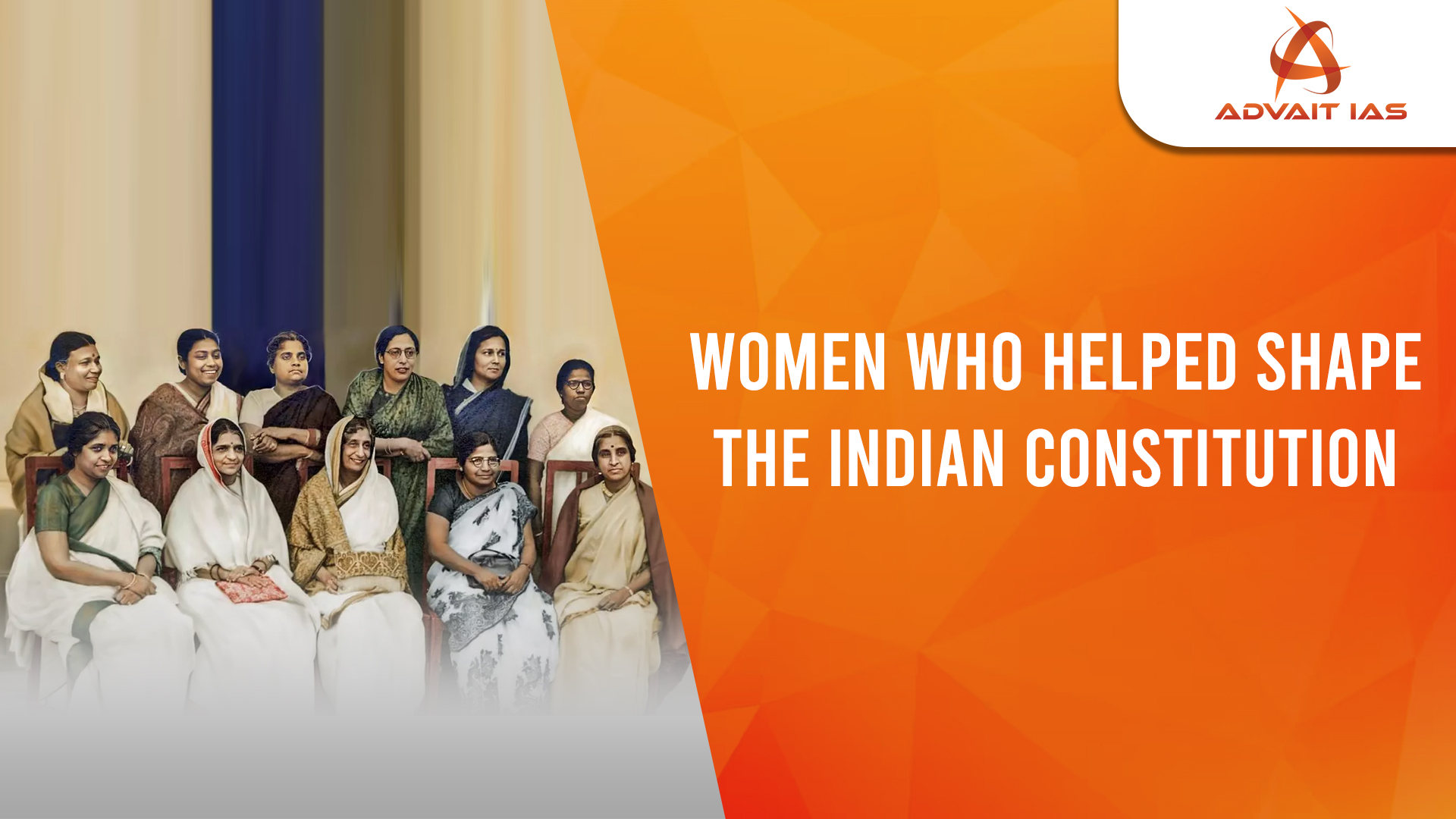On Constitution Day (November 26), President Droupadi Murmu highlighted the significant role played by women members in drafting the Indian Constitution.
- The Constituent Assembly consisted of 299 members, including 15 women.
- Prominent figures included Sarojini Naidu, Sucheta Kripalani, and Vijayalakshmi Pandit.
- Several lesser-known women from diverse backgrounds contributed to debates on gender, caste, and reservations.
Ammu Swaminathan (1894–1978)
- Background: Hailed from Palakkad, Kerala, and married to the much older Subbarama Swaminathan.
- Role in Politics:
-
- Became interested in politics during her teens.
- Strongly opposed caste restrictions and gender discrimination.
- Contested the Legislative Assembly elections from Madras in 1945.
- Became a member of the Constituent Assembly, where she spoke on gender equality.
- Highlighted the irrelevance of the Hindu Code Bill for addressing issues affecting women.
- Post-Independence: Elected to the Lok Sabha from Dindigul, Tamil Nadu.
Annie Mascarene (1902–1963)
- Background: Born in Trivandrum (now Thiruvananthapuram) into a Latin Christian family.
- Challenges:
-
- Faced caste-based discrimination and social ostracism.
- Worked hard to fund her own education despite limited resources.
- Role in Politics:
-
- Joined the Constituent Assembly.
- Advocated for strong central governance during the early days of the Republic.
- Highlighted the autonomy of local governments.
- Post-Independence: Contested and won as an independent candidate in the 1952 parliamentary elections from Thiruvananthapuram.
Begum Qudsia Aizaz Rasul (1909–2001)
- Background:
-
- Belonged to a political family with ties to Malerkotla, Punjab.
- Had a privileged upbringing but faced challenges due to religious constraints on education.
- Received a fatwa against her convent education.
- Role in Politics:
- Joined politics with her husband in 1936.
- Despite opposition, contested and won a seat, becoming a prominent Muslim League member.
- Opposed the idea of Pakistan, citing potential harm to Indian Muslims.
- Post-Independence: Continued advocating for Muslim representation and women’s issues.
Dakshayani Velayudhan (1912–1978)
- Background:
-
- First Dalit woman to graduate in science from Cochin (now Kochi).
- Member of the Cochin Legislative Council.
- Belonged to the Pulaya community, facing caste-based discrimination.
- Role in Politics:
-
- Worked as a teacher and later as a social worker at Mahatma Gandhi’s Sevagram Ashram in Wardha.
- Spoke on issues related to caste discrimination and equality in the Constituent Assembly.
- Post-Independence: Became a Rajya Sabha member in 1952.
Renuka Ray (1904–1997)
- Background:
-
- Born in Pabna (now Bangladesh); her father was a bureaucrat.
- Mother was one of the first women students at Calcutta’s Presidency College.
- Studied at the London School of Economics.
- Role in Freedom Movement:
-
- Quit college in 1920 to join Gandhi’s freedom struggle.
- Focused on women’s rights, raising awareness on divorce and inheritance issues.
- Advocated for equality within the Central Legislative Assembly from 1943.
- Post-Independence:
-
- Opposed women’s reservation in legislatures, calling it an impediment to gender equality.
- Served as a Lok Sabha MP in 1957.






